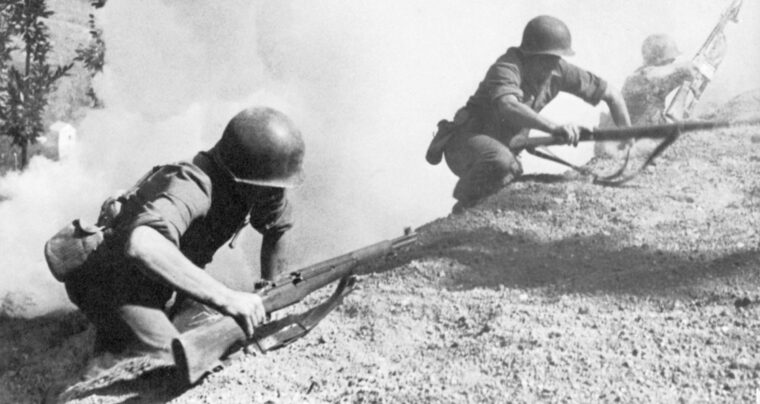
Nazi Germany
Leading the Way: William Orlando Darby’s Rangers in World War II
By Michael D. HullOn a June morning in 1942, a battalion of American soldiers stepped down from a train at Fort William in the northern highlands of Scotland. Read more

Nazi Germany
On a June morning in 1942, a battalion of American soldiers stepped down from a train at Fort William in the northern highlands of Scotland. Read more
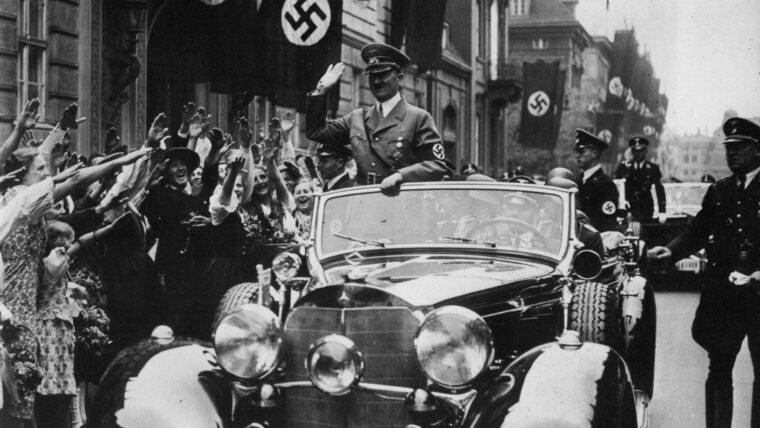
Nazi Germany
Few would argue that Daimler-Benz is one of the most prominent and highly regarded motor vehicle manufacturers in automotive history. Read more
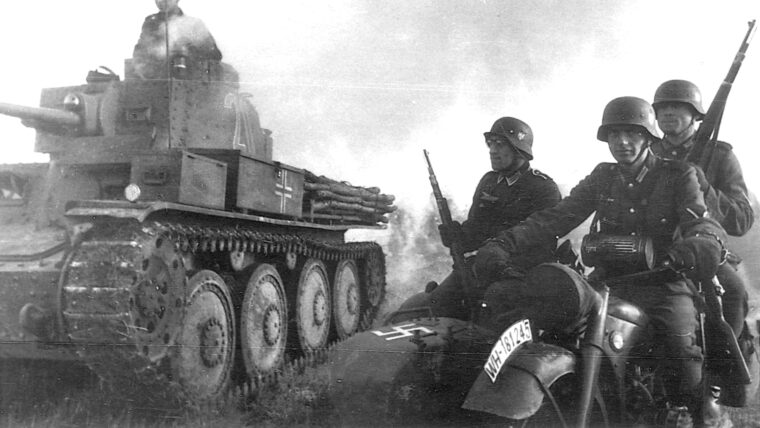
Nazi Germany
Poland, the Netherlands, France, the Balkans, and Russia were subjected to Germany’s blitzkrieg between 1939 and 1941. At the forefront of those assaults were tanks of Czechoslovakian design. Read more
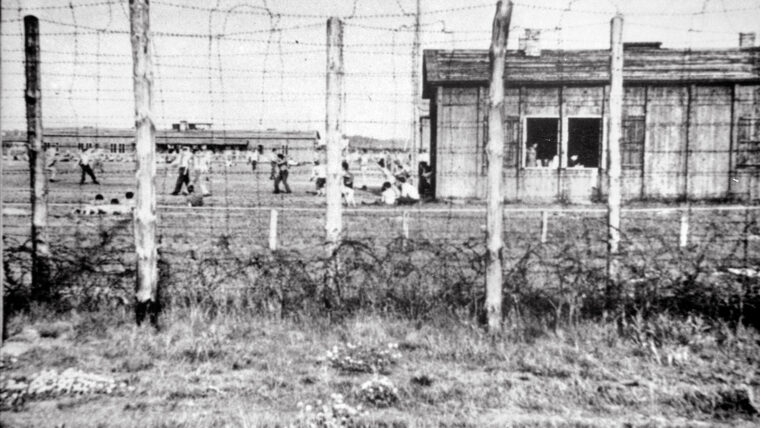
Nazi Germany
On February 6, 1945, the 10,000 POWs of Stalag Luft IV received their marching orders to move out. Read more
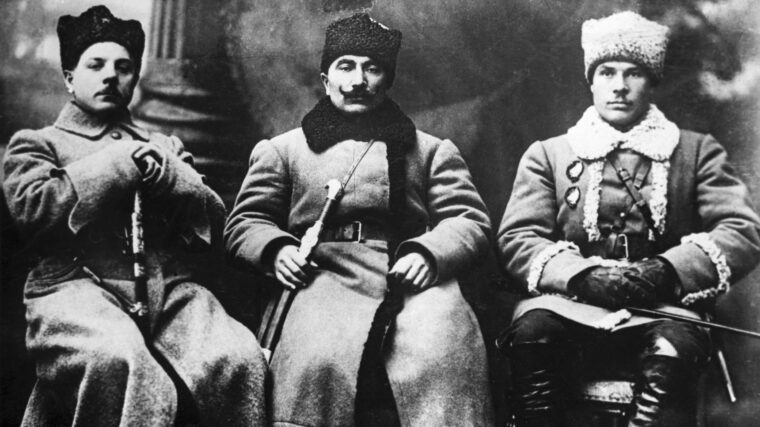
Nazi Germany
In the summer of 1941, as the Nazi German blitzkrieg rolled over the Russian Red Army defenses at the embattled city of Leningrad, today once more St. Read more
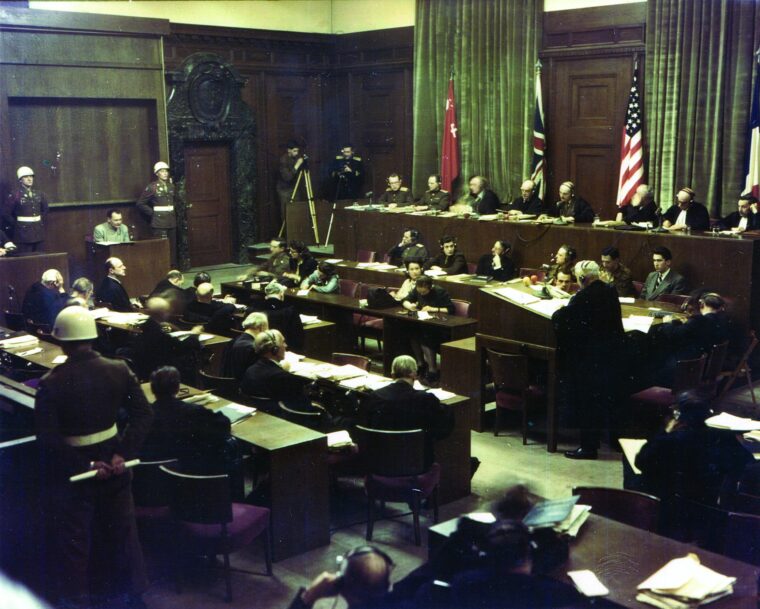
Nazi Germany
Perhaps the most feared group of accused criminals in the annals of history was a potpourri of personalities who had been associated with Adolf Hitler and the Nazi Party. Read more
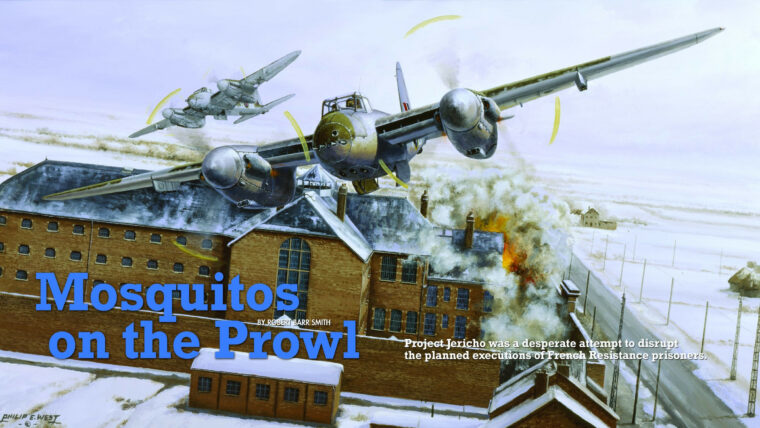
Nazi Germany
Many of the prisoners knew this night was probably their last on earth. Amiens Prison had seen a great many judicial murders and much Gestapo torture and brutality, so except for those about to die, executions were routine. Read more
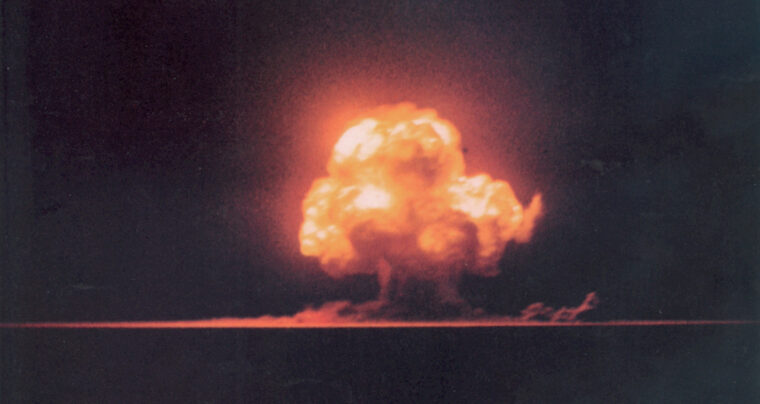
Nazi Germany
The most nightmarish of World War II alternative history scenarios is the one in which Nazi Germany acquires atomic weapons. Read more
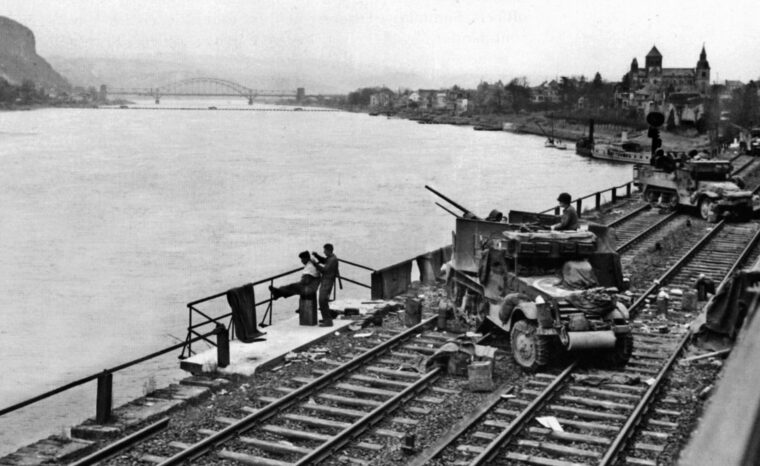
Nazi Germany
Nine months after they splashed ashore on the beaches of Normandy, Allied troops stood along the west bank of the great Rhine River, the last natural barrier between them and the expanse of the Third Reich. Read more
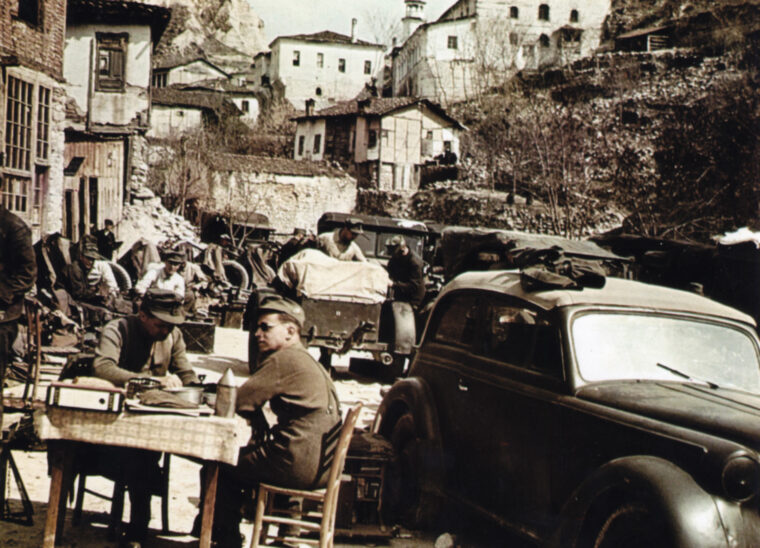
Nazi Germany
It was the high summer of 1943 in Eastern Europe, and World War II was going decidedly against the Third Reich, which had just suffered massive twin defeats on the Russian Front at the Battles of Stalingrad and Kursk, which many historians now believe turned the tide of war irrevocably against Nazi Germany. Read more
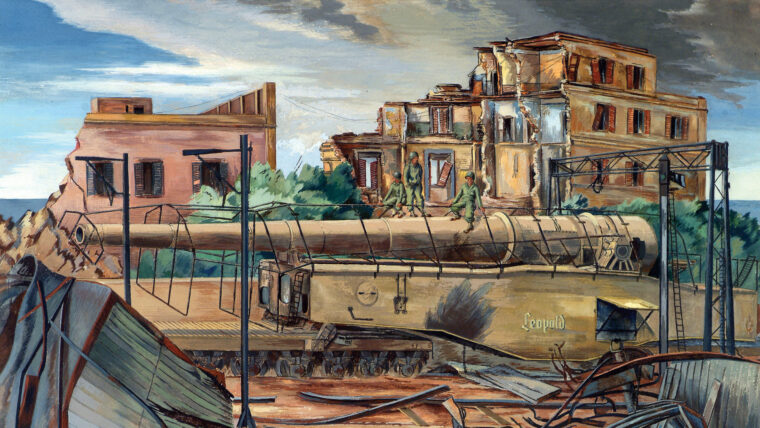
Nazi Germany
As the last days of 1943 slipped away, World War II in Italy ground to a miserable stalemate. Read more
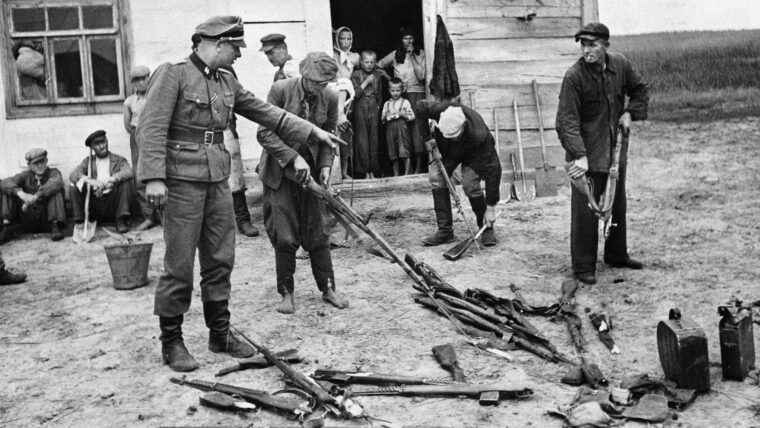
Nazi Germany
The concept of Soviet partisans participating in Russia’s wars was nothing new in 1941. During Napoleon’s invasion of the country in 1812, small bands of civilians harassed the French and their allies both before and after the retreat from Moscow. Read more
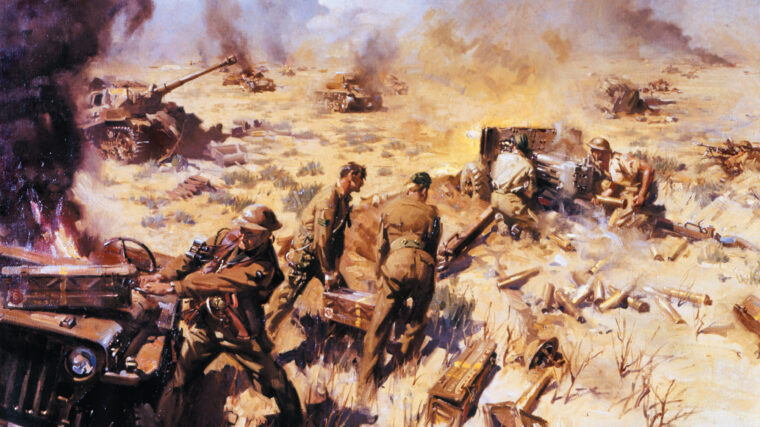
Nazi Germany
An old cliché admonishes, “Bad things always come in threes.” Whether it was thought of as a law of nature or merely coincidence, a rapid succession of events in North Africa during the summer of 1942 seemed to confirm this widely held notion among the officers and men of the British Eighth Army. Read more
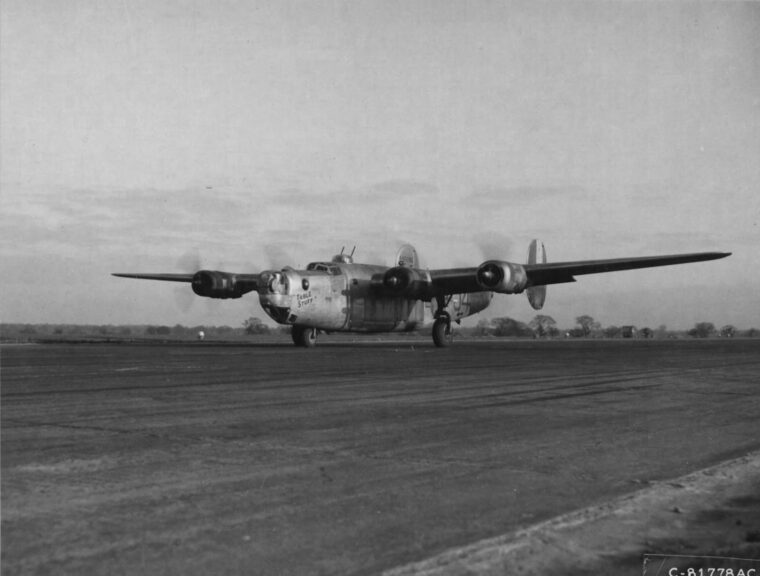
Nazi Germany
As soon as one caveman threw a rock in anger at another, the human race took a giant step forward in warfare. Read more
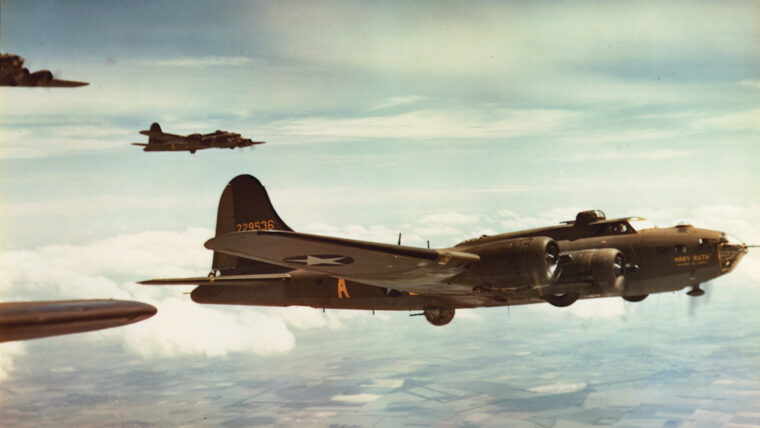
Nazi Germany
Behind the strategy that governed the American air war in Europe during World War II lay events and ideas that dated back to World War I and the 1920s. Read more
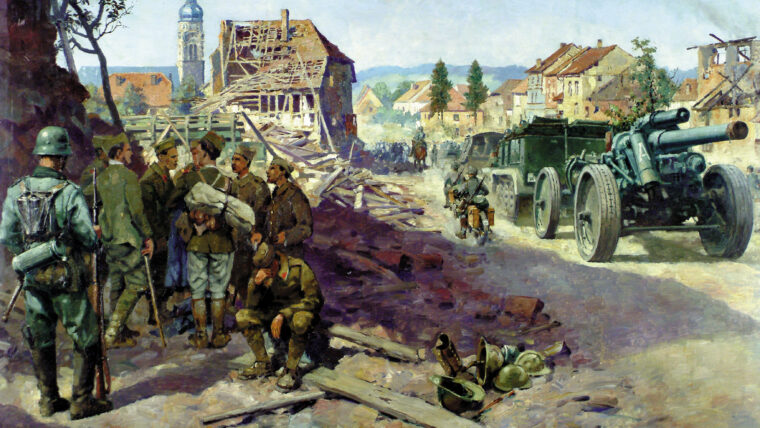
Nazi Germany
Andrei Andreievich Vlasov, one of Soviet dictator Josef Stalin’s favorite generals, played a key role in saving Moscow from Adolf Hitler’s armies during the winter of 1941-1942. Read more
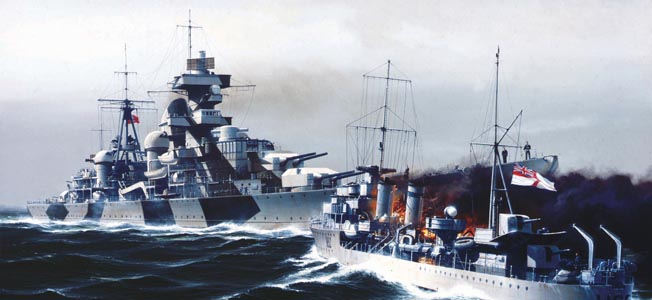
Nazi Germany
The great waves were huge and black, greedy tentacles of the North Sea clawing and snatching at the battered ships struggling in the icy dark. Read more
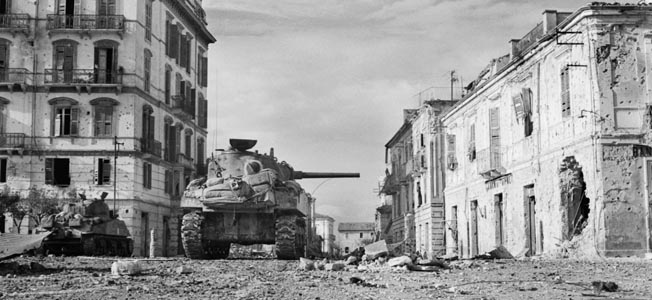
Nazi Germany
By the autumn of 1943, the Allied armies fighting in Italy had discovered that Winston Churchill’s description of Italy as the “soft underbelly of Europe” had been a falsehood of monumental proportions. Read more
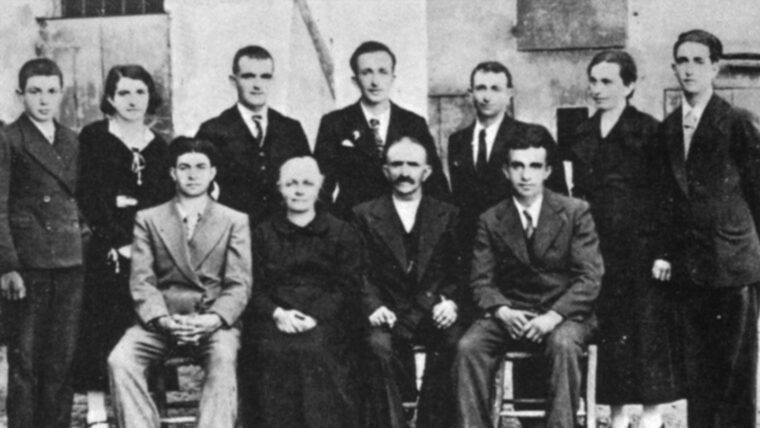
Nazi Germany
In March 1940, Benito Mussolini met with Adolf Hitler near the Brenner Pass on the border between Austria and Italy. Read more
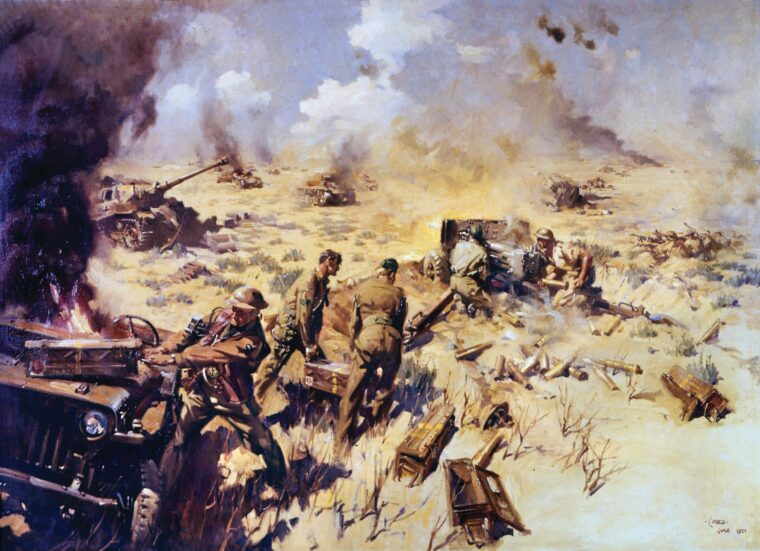
Nazi Germany
The war in North Africa flung vast armies across the arid deserts of Libya and Egypt for two long years, beginning with the Italian invasion of Egypt in September 1940. Read more